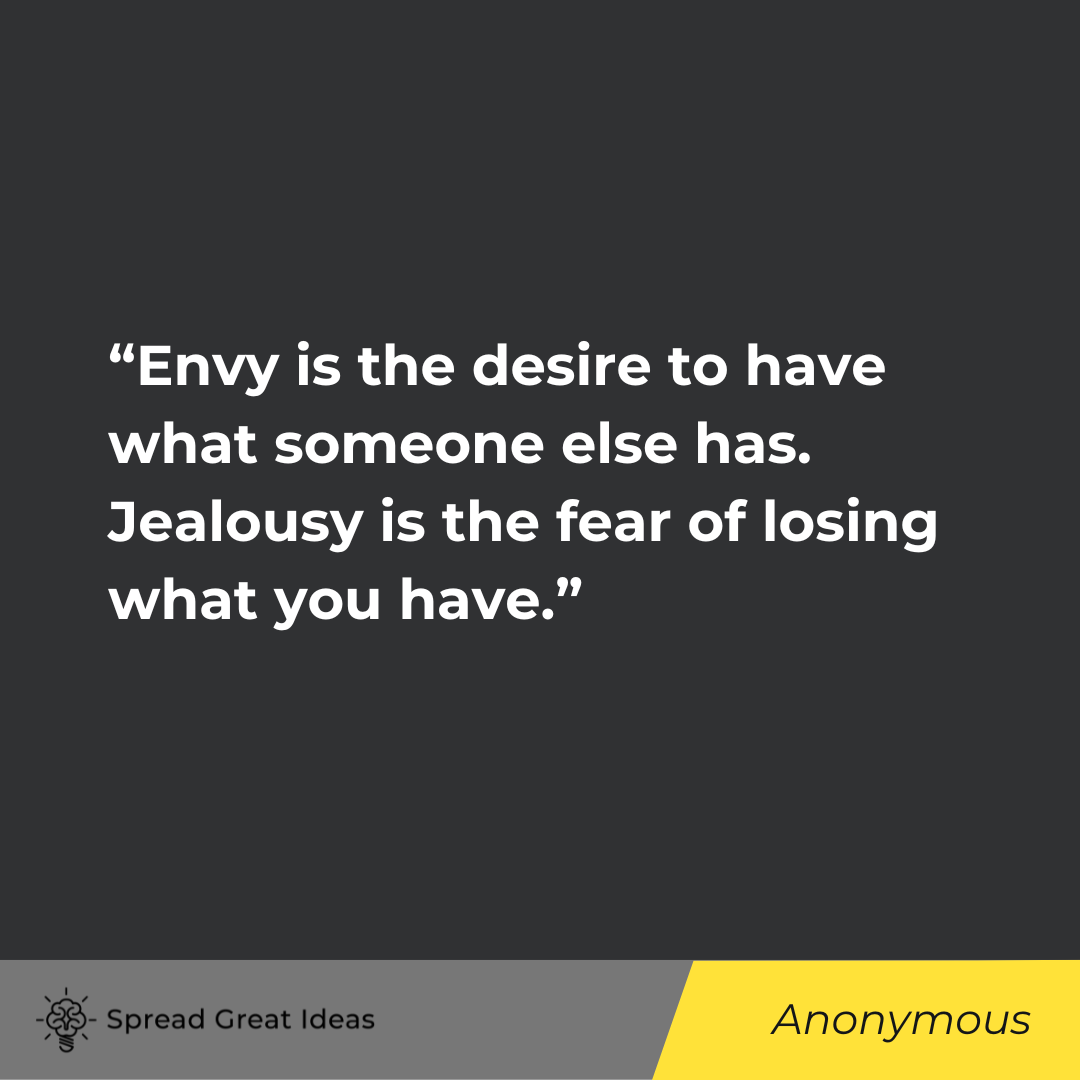Table of Contents

Envy, often depicted as the “green-eyed monster,” has long been recognized as one of the most potent and pervasive human emotions. It is a complex blend of longing, resentment, and insecurity that arises when we perceive others to possess something—be it material wealth, success, talent, or personal qualities—that we desire for ourselves. From the ancient wisdom of philosophers and sages to the poignant observations of contemporary thinkers, quotes on envy offer profound insights into the human psyche and the intricacies of social interaction.
In this article, we embark on a journey through insightful quotes on envy, each offering a unique perspective on this universal phenomenon. These quotes serve as mirrors, reflecting not only the nature of envy itself but also its profound impact on our thoughts, emotions, and behaviors. By exploring these words of wisdom, we hope to unravel the complexities of envy and gain a deeper understanding of its role in our lives.
Through the lens of renowned writers, philosophers, and cultural figures, we will delve into the psychological mechanisms behind envy, its destructive consequences, and the strategies for overcoming its grip. From ancient proverbs to contemporary reflections, each quote serves as a poignant reminder of the dangers of comparison, the folly of covetousness, and the importance of cultivating gratitude and self-awareness.
Join us as we navigate the labyrinth of envy, guided by the timeless wisdom encapsulated in these insightful quotes. Through introspection and reflection, may we emerge with a greater appreciation for the richness of our own lives and a renewed sense of empathy for the journeys of others.
Quotes on Envy: Understanding the Green-Eyed Monster
Naval Ravikant
“Envy makes the world go around.”
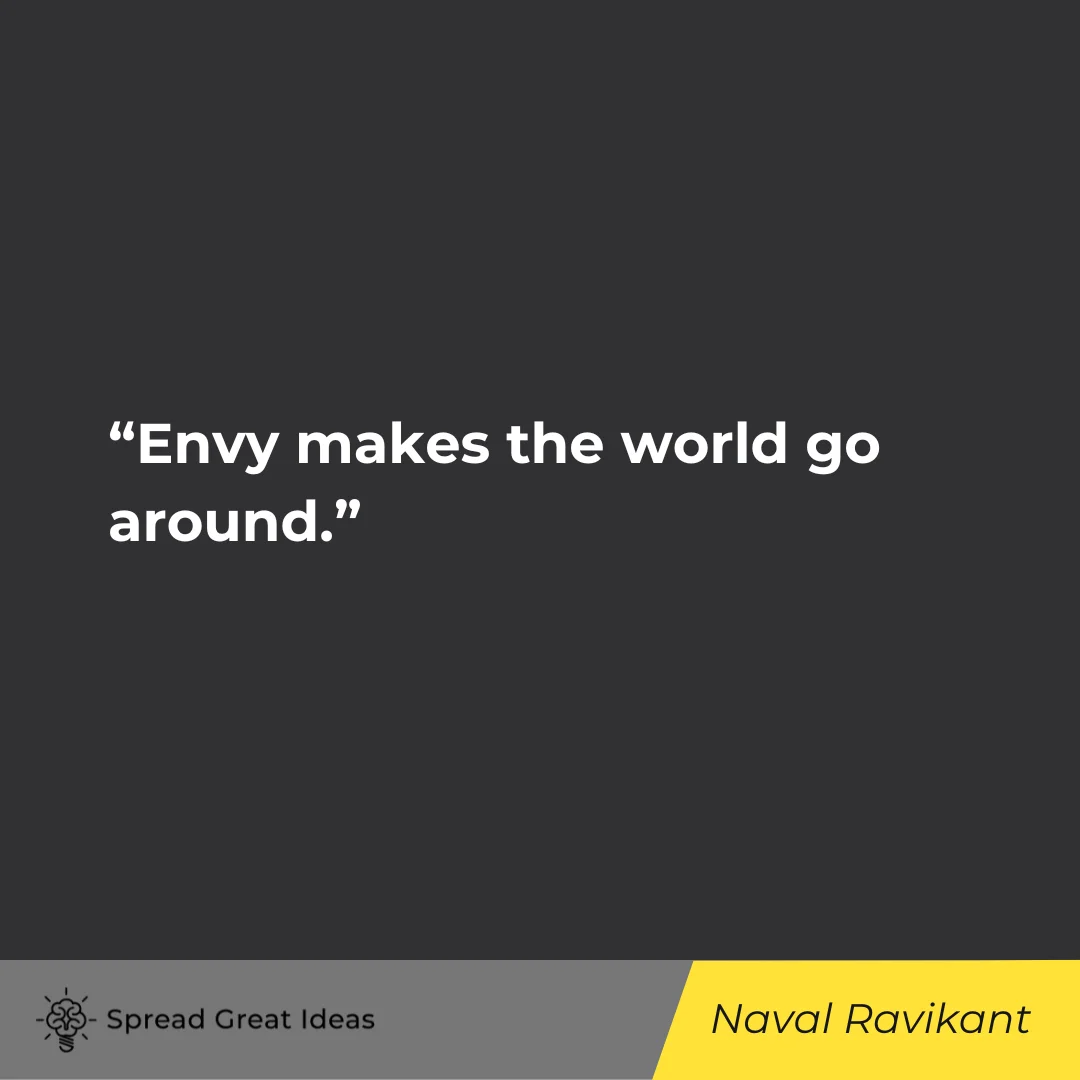
Harold Coffin
“Envy is the art of counting the other fellow’s blessings instead of your own.”
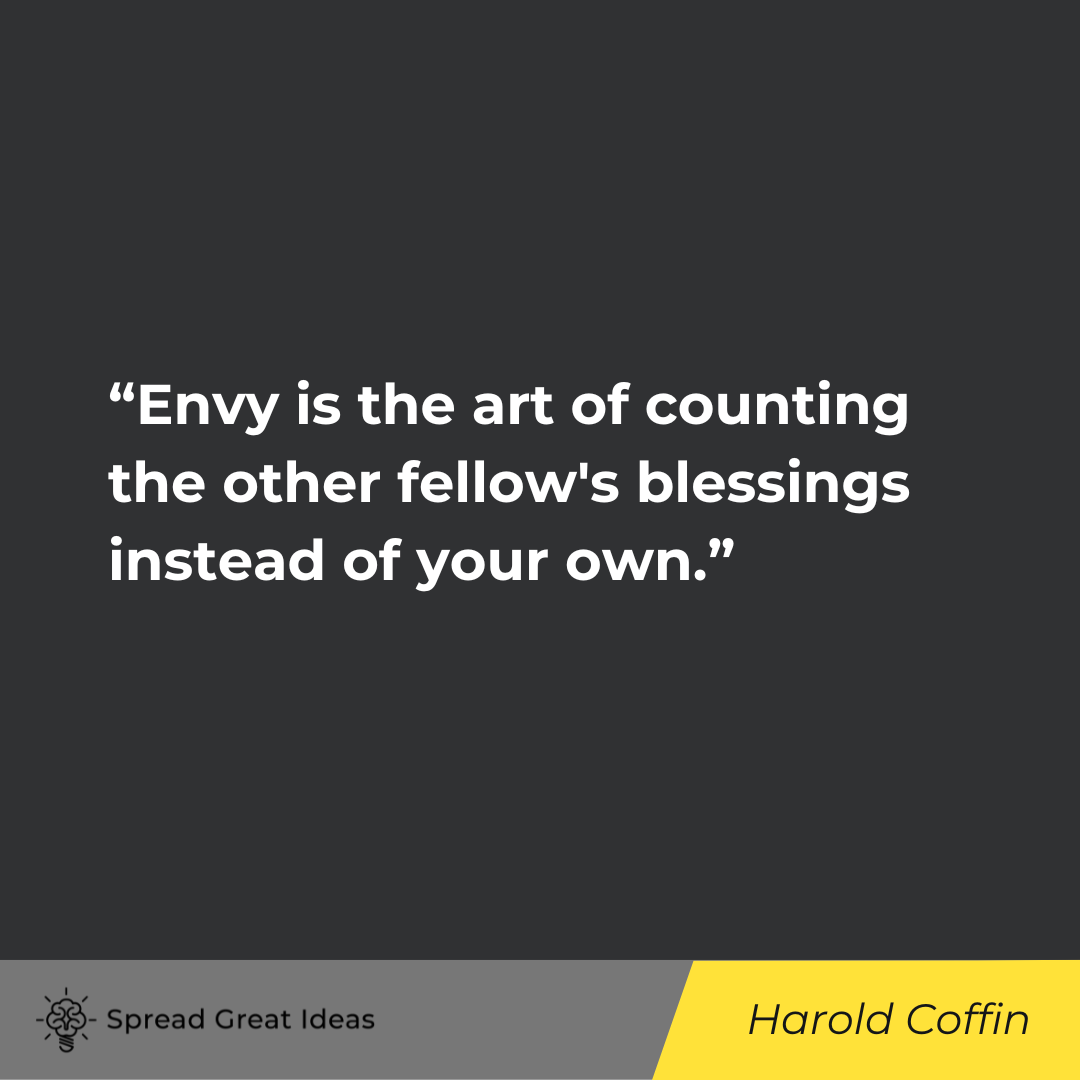
“Envy is the art of counting the other fellow’s blessings instead of your own.”
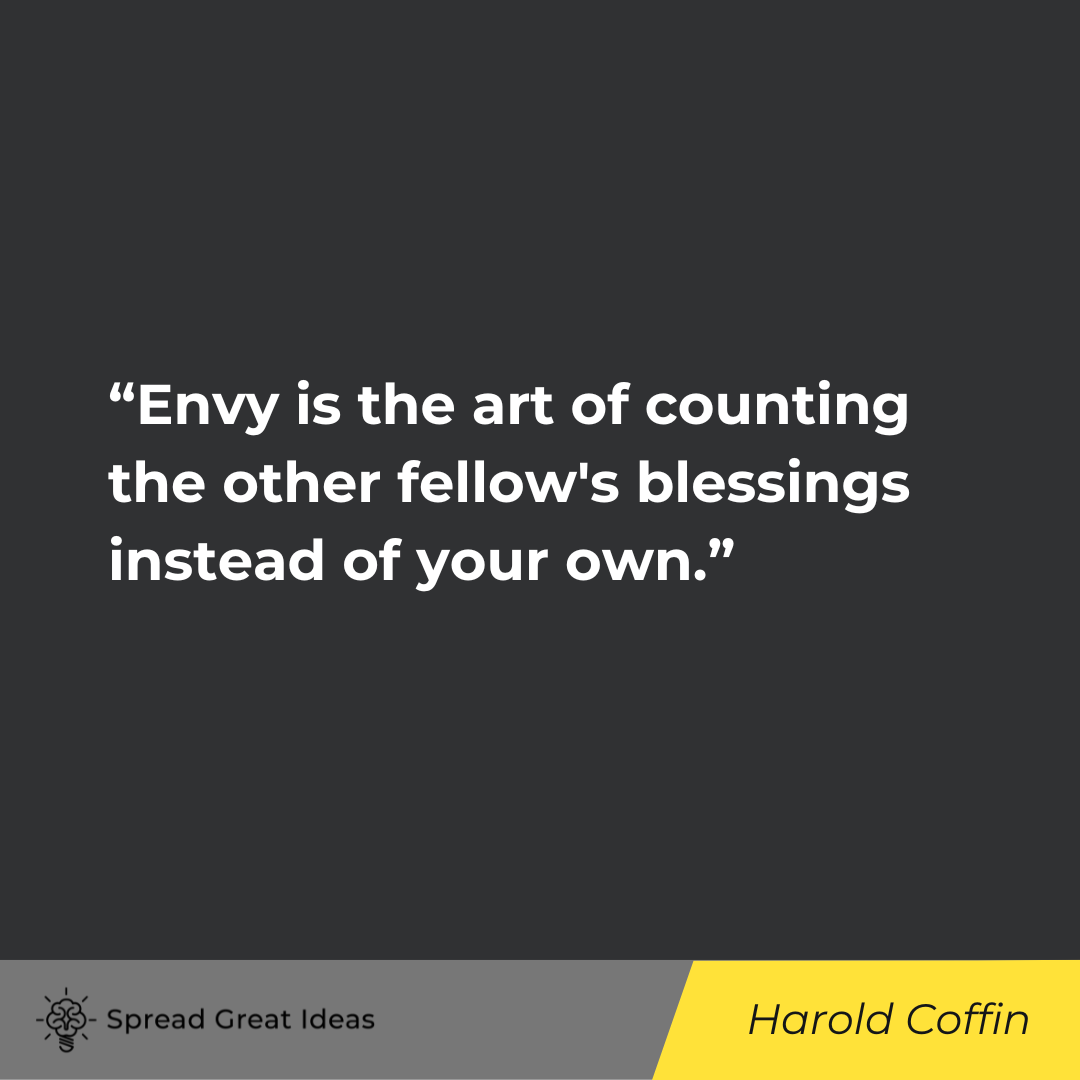
English Proverb
“Envy shoots at others and wounds itself.”
— English Proverb
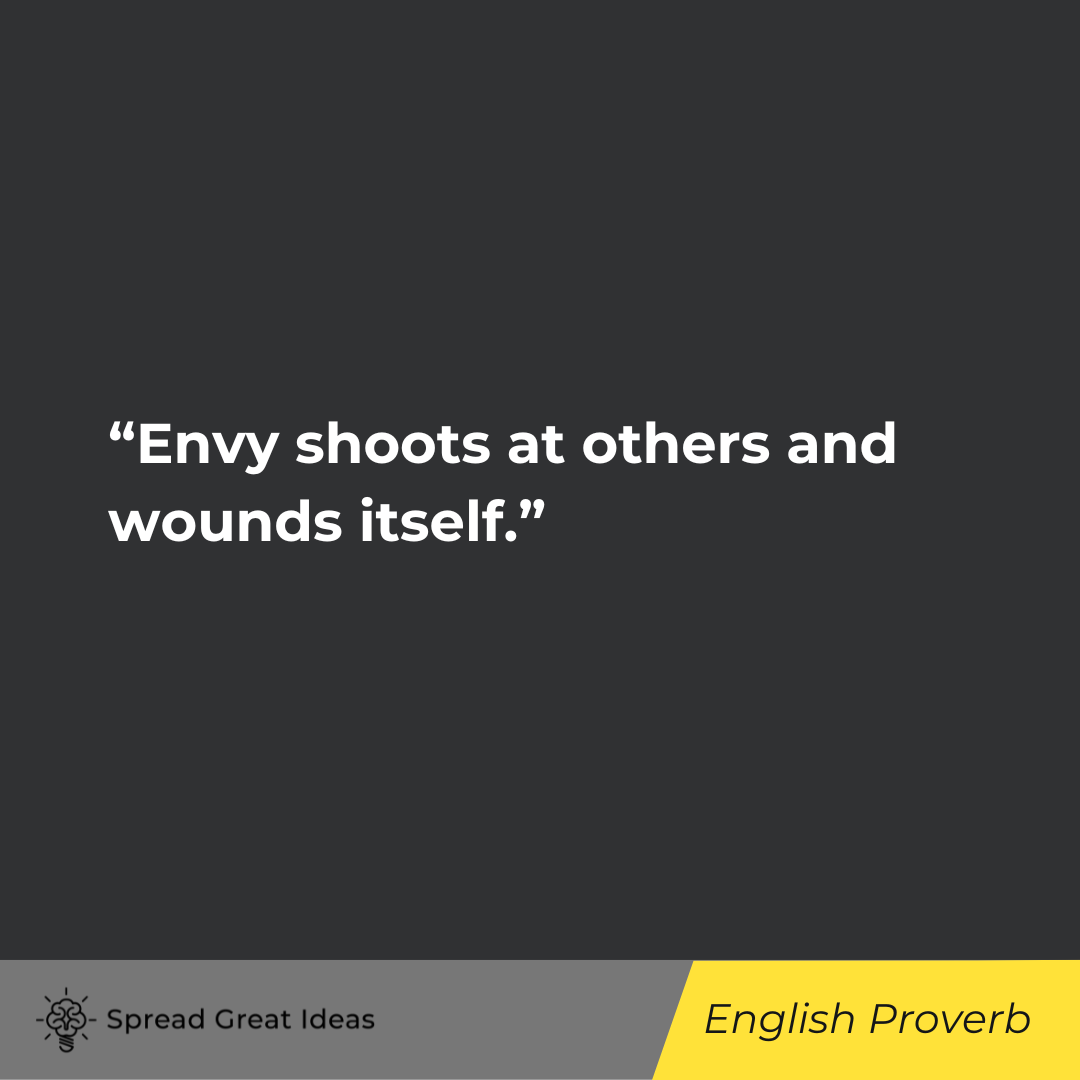
Socrates
“Envy is the ulcer of the soul.”
— Socrates
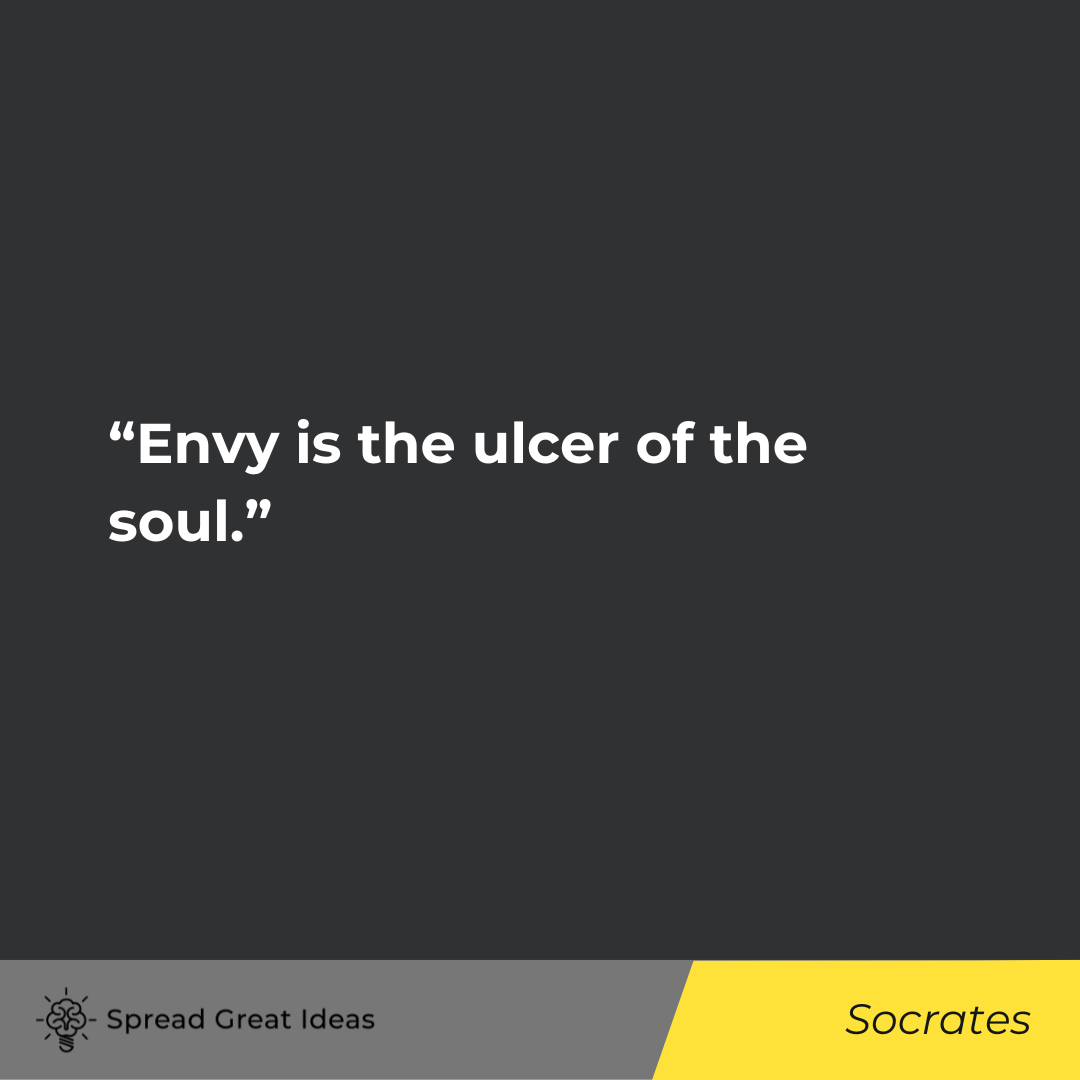
“The envious person grows lean with the fatness of their neighbor.”
— Socrates
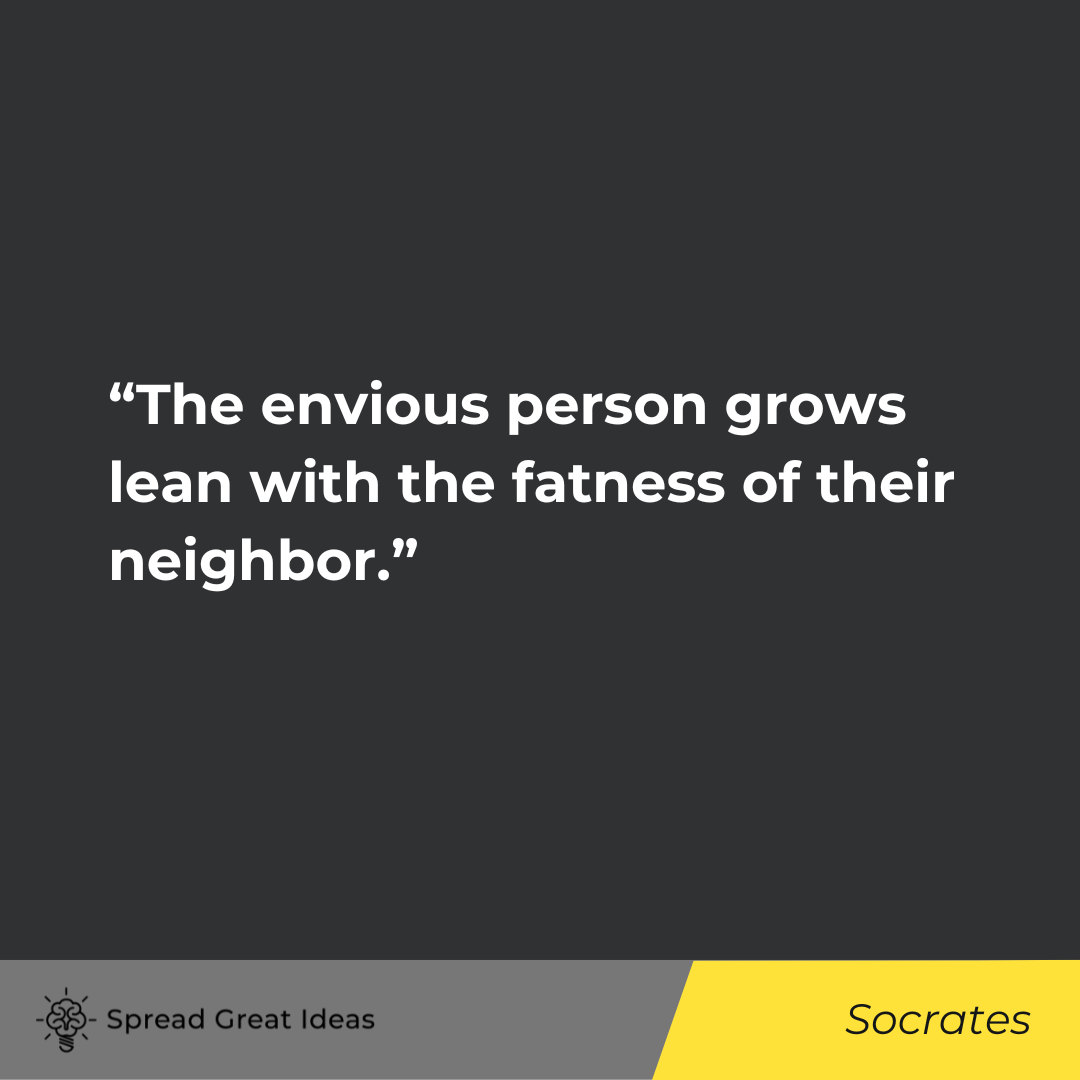
Honoré de Balzac
“Envy is the most stupid of vices, for there is no single advantage to be gained from it.”
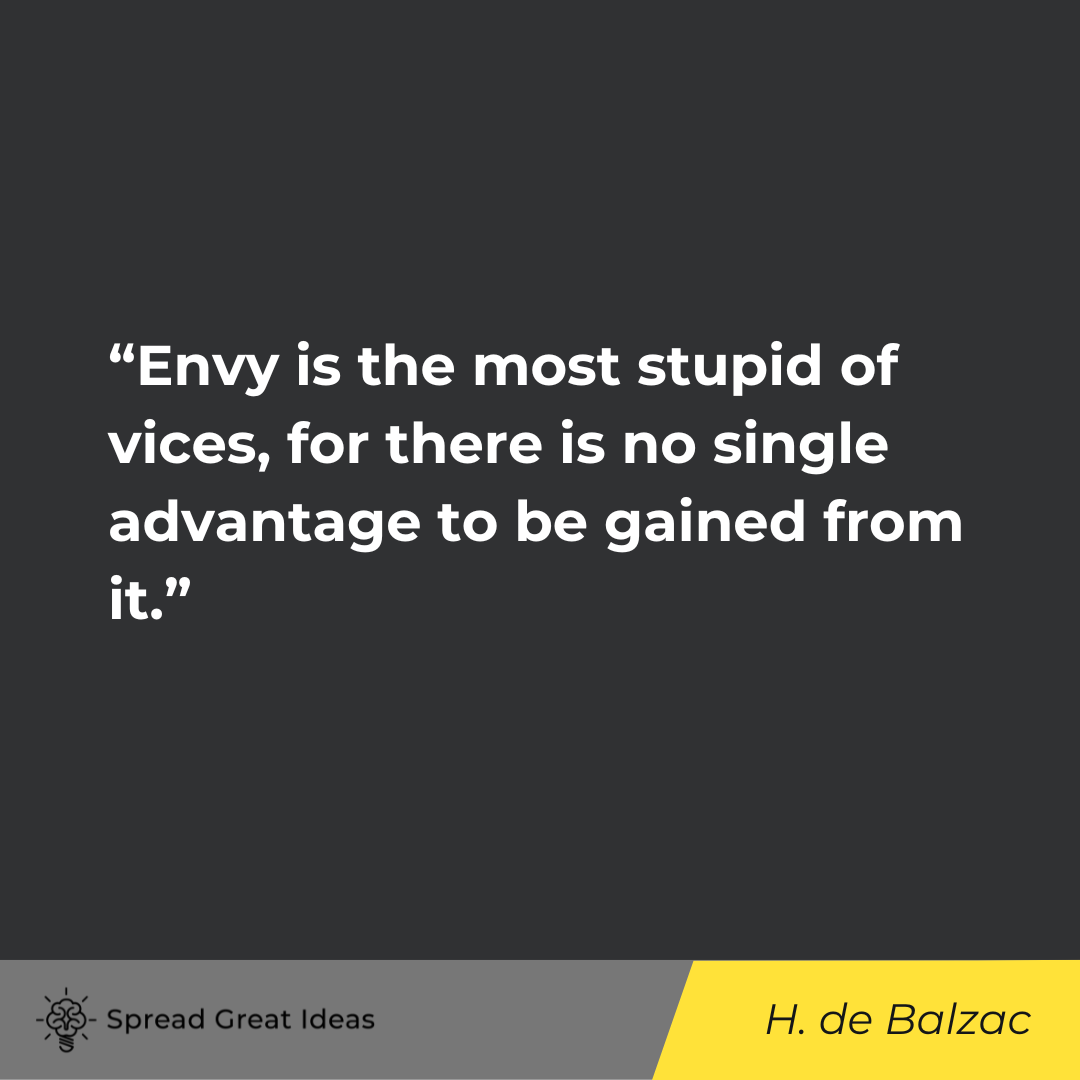
Baltasar Gracián
“The envious die not once, but as oft as the envied win applause.”
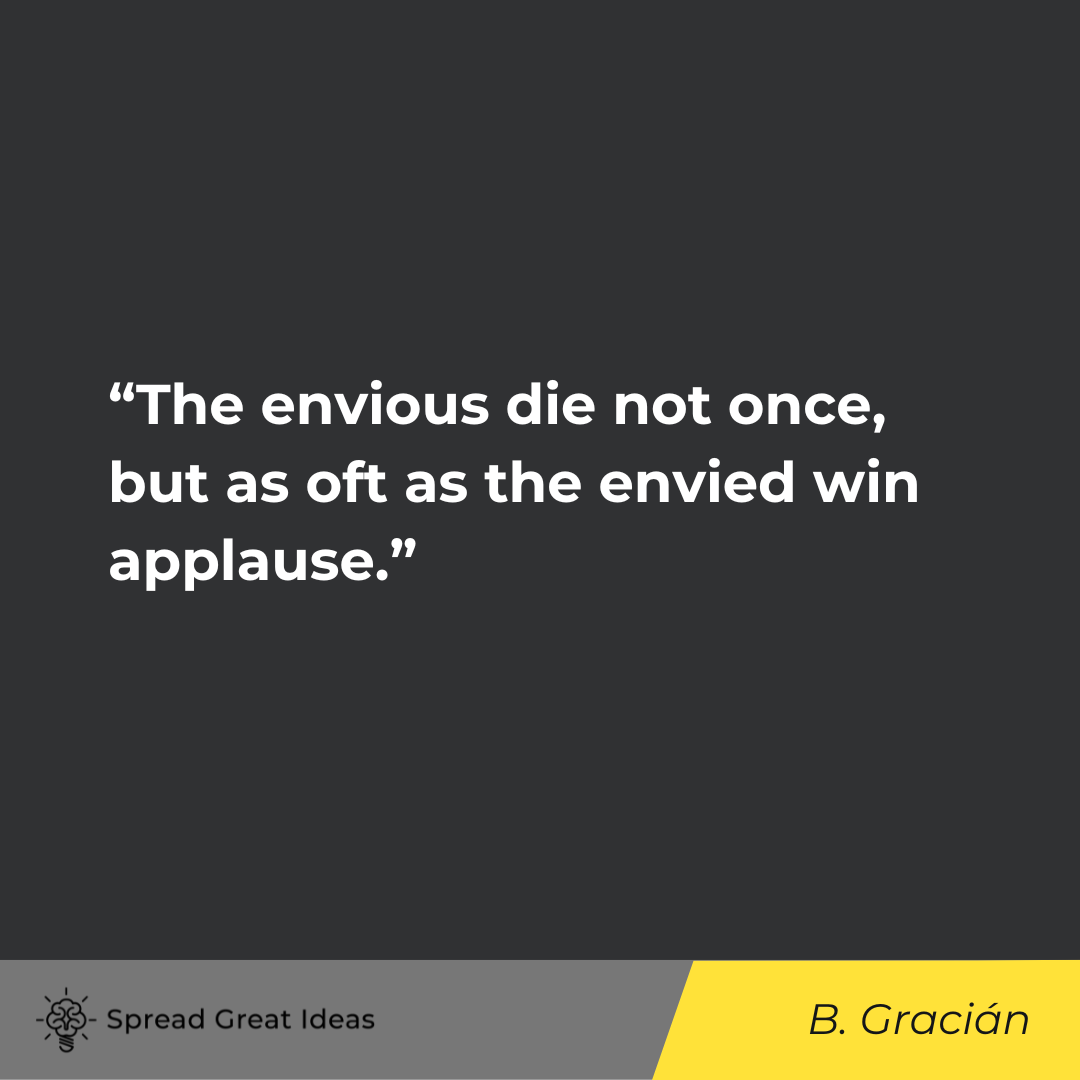
William Hazlitt
“Envy is a littleness of soul, which cannot see beyond a certain point, and if it does not occupy the whole space, feels itself excluded.”
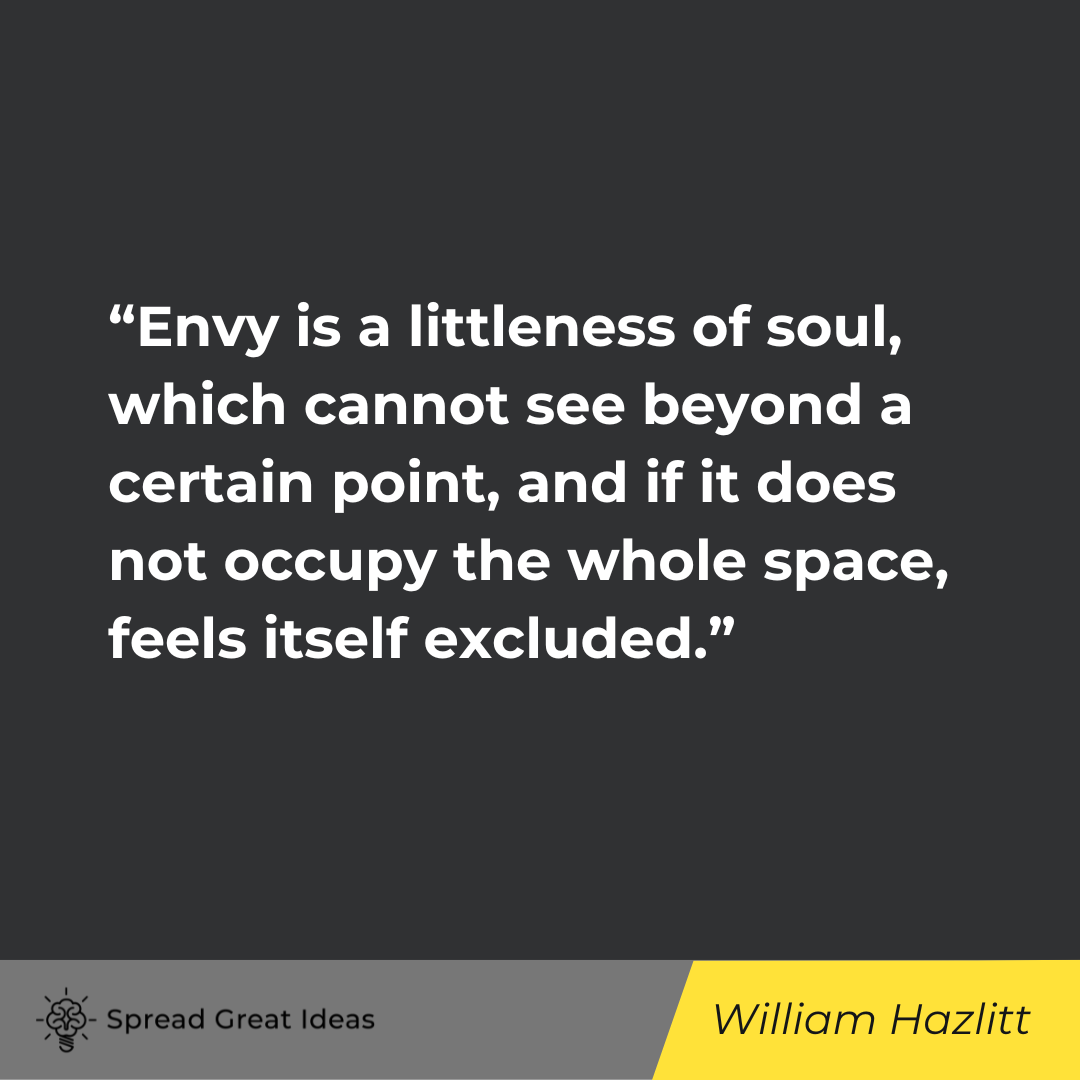
Latin Proverb
“Envy is the companion of glory.”
— Latin Proverb
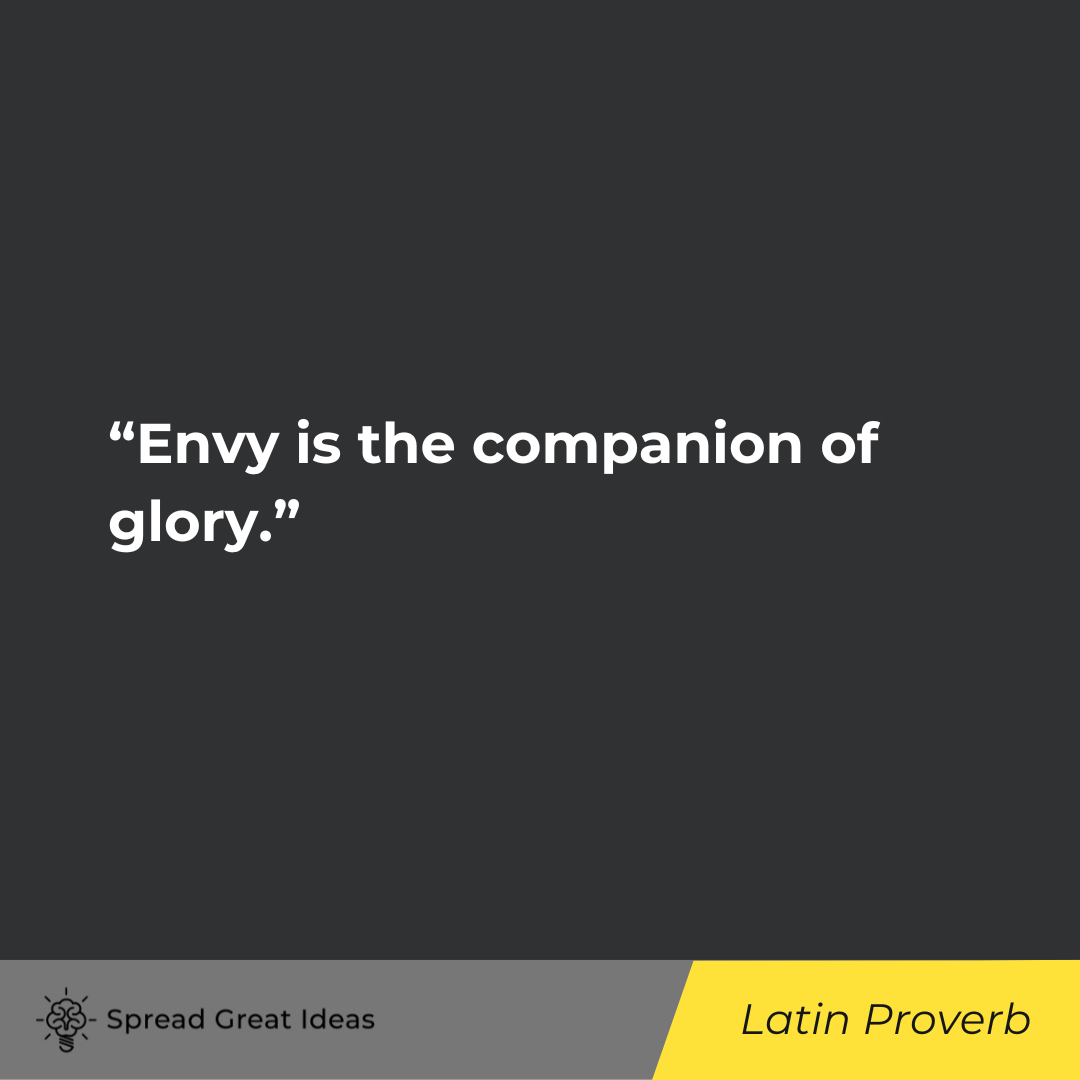
Spanish Proverb
“Envy is thin because it bites but never eats.”
— Spanish Proverb
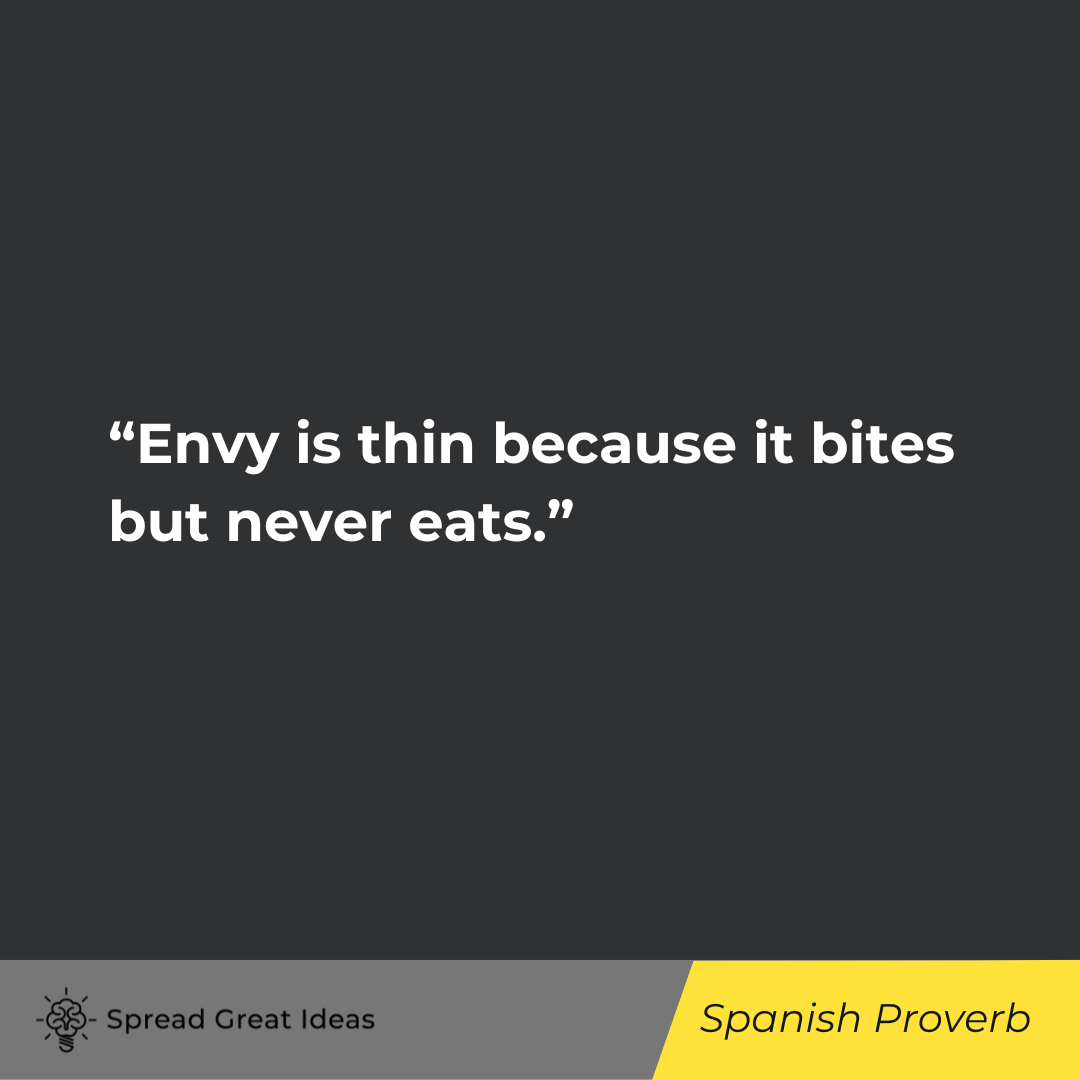
Unknown
“Envy is a symptom of lack of appreciation of our own uniqueness and self-worth.”
— Unknown
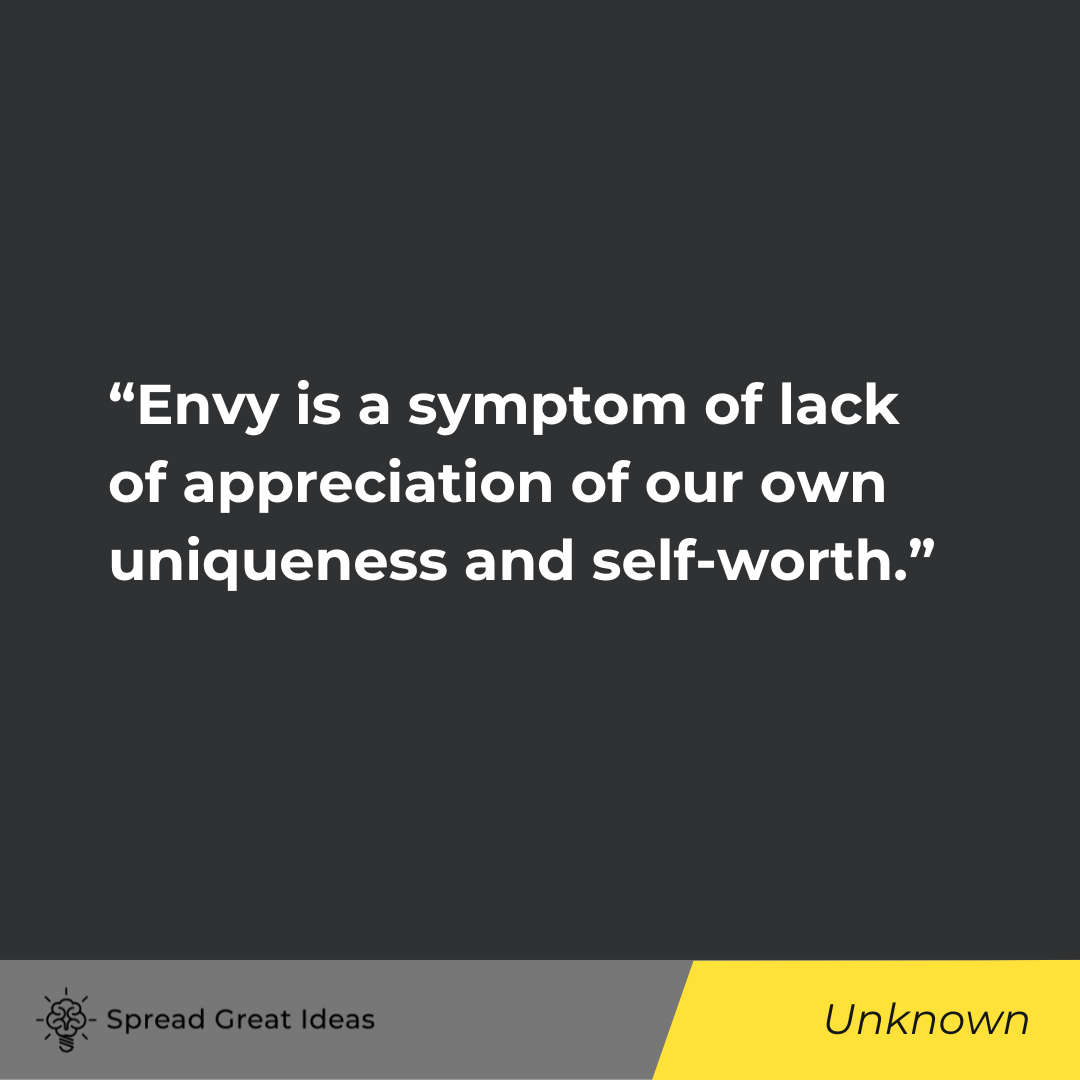
Arthur Chapman
“Envy is like a fly that passes all the body’s sounder parts, and dwells upon the sores.”

Ralph Waldo Emerson
“Envy is ignorance.”
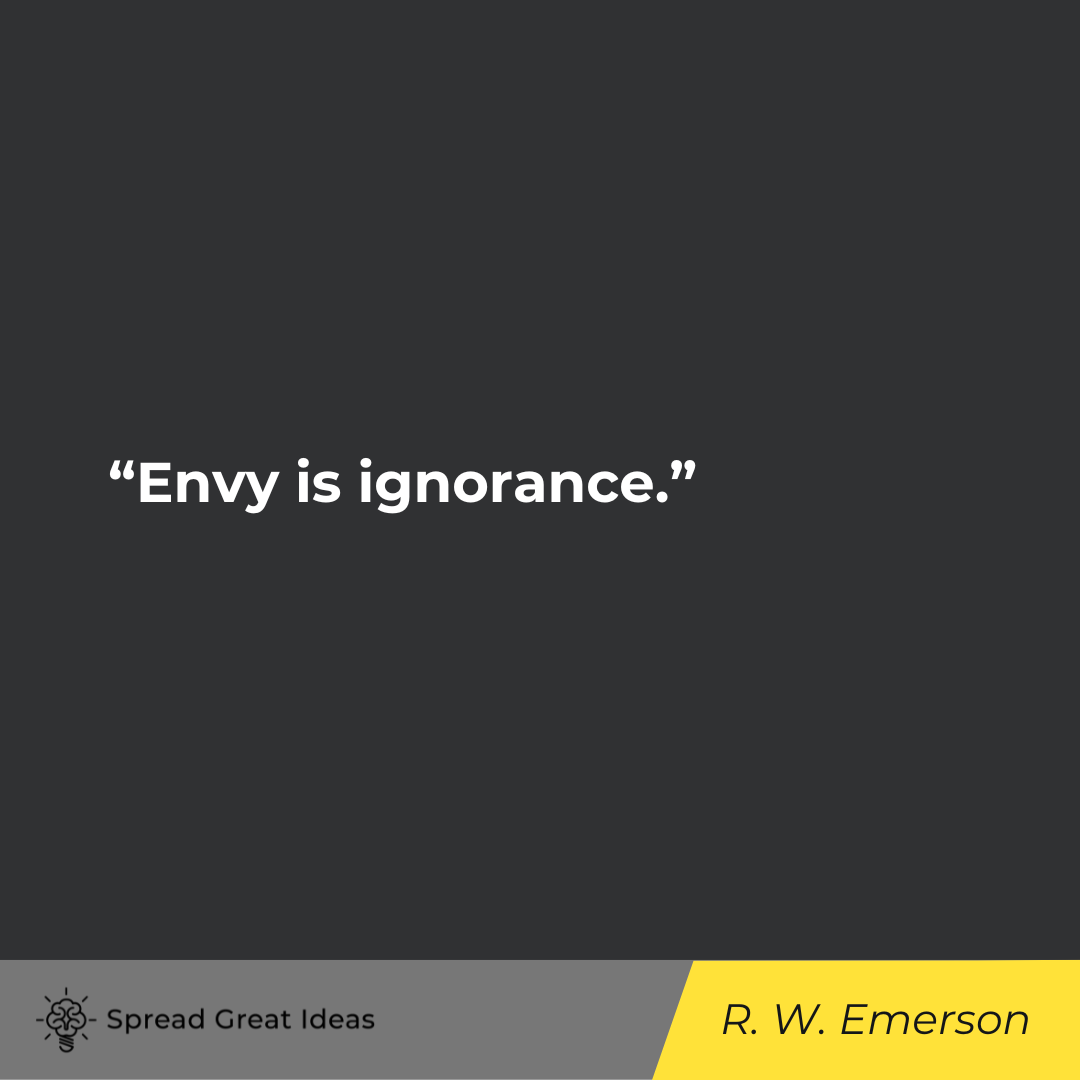
Anonymous
“Envy is the desire to have what someone else has. Jealousy is the fear of losing what you have.”
